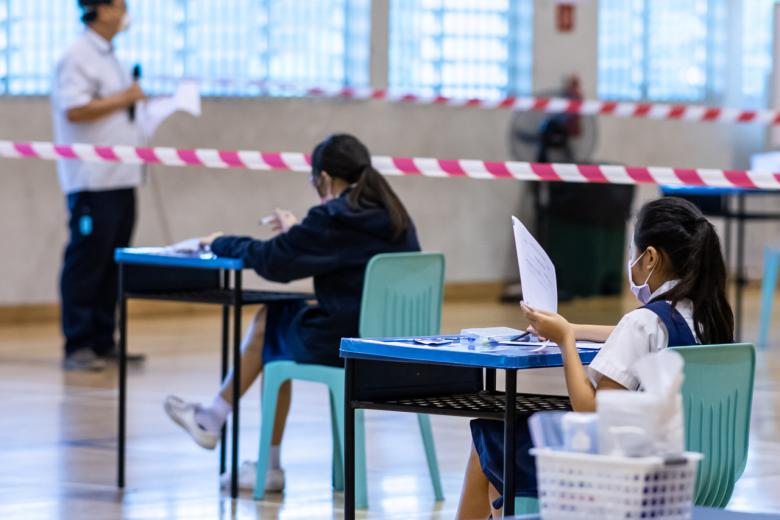SINGAPORE - Pinpointing the best age to test students in a national examination that balances children's different pace of development is something the Education Ministry will continue to study.
Testing too early might be detrimental for some late bloomers, while testing too late might mean being unable to apply the interventions necessary to help children progress at their pace, said Education Minister Chan Chun Sing in Parliament on Monday (March 7).
Said Mr Chan: "Given the diversity of our learners, it's very hard to say that there is just one point for everyone. But to the extent that we can, we will find that point - be it PSLE or otherwise - to cater to the bulk of our students."
He was responding to a question from Mr Darryl David (Ang Mo Kio GRC) on whether the ministry will consider introducing coursework as part of the PSLE.
Ms Denise Phua (Jalan Besar GRC) and Progress Singapore Party Non-Constituency MP Hazel Poa also suggested that the PSLE be scrapped and replaced by through-train programmes instead, with Ms Poa noting that stress caused by the exam is undesirable.
Ms Phua said in Parliament: "We are so used, for example, to using the academic yardstick in parenting, in hiring, and even in judging one another."
Mr Chan said the fundamental issue of why exams are stressful depends on the individual's attitudes towards the assessment.
He said: "A test or an assessment is an opportunity for us to know ourselves better, to know our children better - where they stand, where they're strong, and where they're weak."
A test could be less stressful if viewed as "surpassing ourselves rather than surpassing other people", he added.
Going forward, tests should have less to do with rote memorisation and shift towards making sense of the plethora of information sources available and creating solutions to future problems, said Mr Chan, adding that how stressful this is depends on perspective.
On the timing of exams, Mr Chan said: "The assurance that we want to give to everyone is this: That one point doesn't and will not define a person's future forever."
Success should be defined by finding the appropriate pathway for students rather than getting into a school that is deemed the “most popular or most successful”, Mr Chan said.
Seeing test results as a means to determine the correct pathway for students will make exams less stressful, he added.
Acknowledging that exams will impose some stress, he said: "I must also qualify that it is not our aim to remove all stress from our children. It is not possible and that should not be our aim.
"Our aim is to make sure that we stretch our students appropriately - not too much, not too little."


